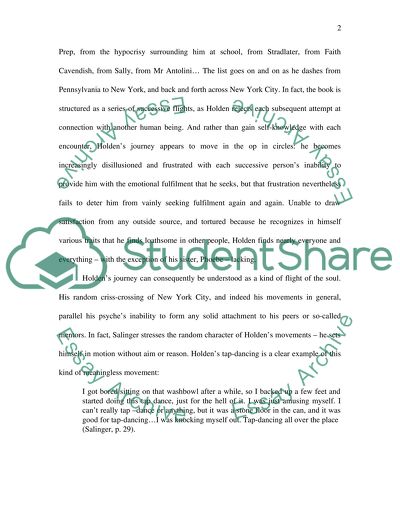Cite this document
(“Journeys of the Self in The Catcher in the Rye and A Room with a View Book Report/Review”, n.d.)
Journeys of the Self in The Catcher in the Rye and A Room with a View Book Report/Review. Retrieved from https://studentshare.org/literature/1518684-journeys-of-the-self-in-the-catcher-in-the-rye-and-a-room-with-a-view
Journeys of the Self in The Catcher in the Rye and A Room with a View Book Report/Review. Retrieved from https://studentshare.org/literature/1518684-journeys-of-the-self-in-the-catcher-in-the-rye-and-a-room-with-a-view
(Journeys of the Self in The Catcher in the Rye and A Room With a View Book Report/Review)
Journeys of the Self in The Catcher in the Rye and A Room With a View Book Report/Review. https://studentshare.org/literature/1518684-journeys-of-the-self-in-the-catcher-in-the-rye-and-a-room-with-a-view.
Journeys of the Self in The Catcher in the Rye and A Room With a View Book Report/Review. https://studentshare.org/literature/1518684-journeys-of-the-self-in-the-catcher-in-the-rye-and-a-room-with-a-view.
“Journeys of the Self in The Catcher in the Rye and A Room With a View Book Report/Review”, n.d. https://studentshare.org/literature/1518684-journeys-of-the-self-in-the-catcher-in-the-rye-and-a-room-with-a-view.


